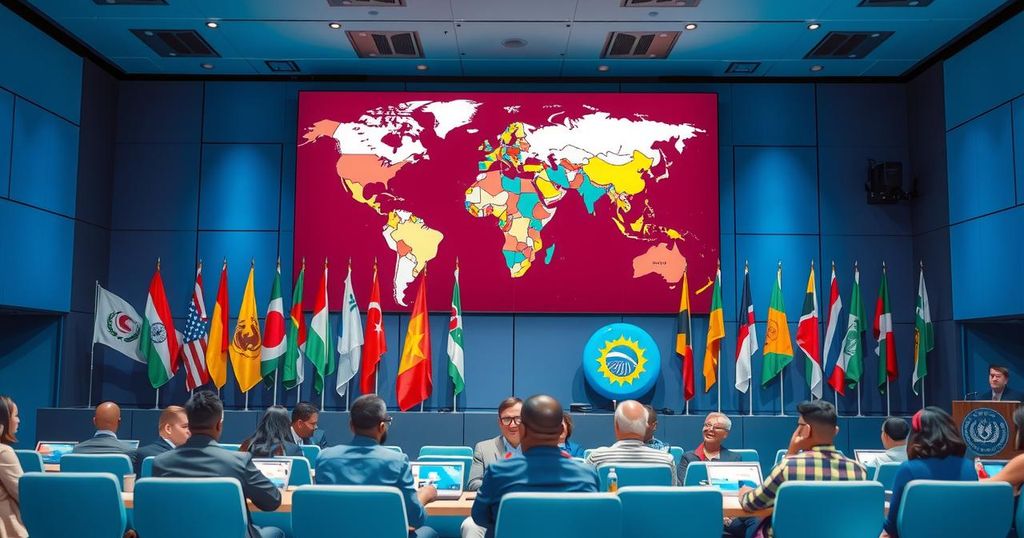Syria Joins Donor Conference: A Significant Step for New Leadership
Syria is attending a donor conference for the first time, hosted by the EU in Brussels, amid efforts to rebuild the country after the ousting of Bashar Assad. The interim government seeks aid and legitimacy while facing significant economic challenges and insecurity. The humanitarian situation remains dire, despite some improvements in aid access under the new administration.
Syria is participating in a donor conference for the first time, marking a significant moment for its new leadership under interim president Ahmad Al-Sharaa. The European Union is hosting the meeting in Brussels, focusing on garnering support for a peaceful transition following the ousting of former President Bashar Assad in December 2024. The conference aims to address the urgent need for humanitarian assistance and economic recovery in the war-torn nation.
Various stakeholders will convene, including Western ministers, regional neighbors, Arab nations, and UN agencies, all chaired by EU foreign policy chief Kaja Kallas. Syria will be represented by Foreign Minister Asaad Hassan al-Shibani, reflecting the swift changes the country is undergoing. The conference is crucial as Syria’s interim government seeks to establish control over territories fractured during 14 years of civil war and stimulate the nation’s economy.
The UN estimates rebuilding Syria will require at least $250 billion, with experts suggesting costs could escalate to $400 billion. However, the economy’s recovery is hindered by stringent Western sanctions imposed during Assad’s regime, which remain largely in place. The interim government aims to strengthen its international legitimacy at the conference, potentially seeking relief from these sanctions while also requesting immediate aid.
Complicating matters, recent violent clashes have emerged following an ambush on a Syrian security patrol by pro-Assad factions. Sectarian violence has erupted, particularly against Assad’s Alawite minority group, raising concerns over stability. The EU has called for respect of Syria’s sovereignty and a peaceful transition, expressing its cautious support for the new government.
The interim administration, led by Ahmad al-Sharaa, is attempting to assert authority over a fragmented landscape, with many citizens still skeptical of the newly established Islamist leadership. While improvements have been noted under the interim regime, the EU has signaled a potential reinstatement of sanctions should the situation deteriorate further. Syria’s dire state necessitates comprehensive reconstruction efforts to avoid becoming a breeding ground for extremism.
On the humanitarian front, the challenges are immense, with severe shortages in electricity, clean water, and employment. Approximately 7 million people are displaced within Syria, alongside 4.7 million registered refugees in neighboring countries. Despite these difficulties, U.N. humanitarian chief Tom Fletcher reports a more favorable operating environment under the interim government, indicating improved conditions for aid delivery and border management.
Syria’s participation in the donor conference is a pivotal step towards achieving stability and recovery under its new leadership. The interim government is focused on establishing international legitimacy and seeking support for rebuilding efforts amidst ongoing security challenges and humanitarian crises. The success of this conference could significantly impact Syria’s future, as the country strives to overcome deep-seated economic and infrastructural devastation while fostering a peaceful transition.
Original Source: apnews.com




Post Comment